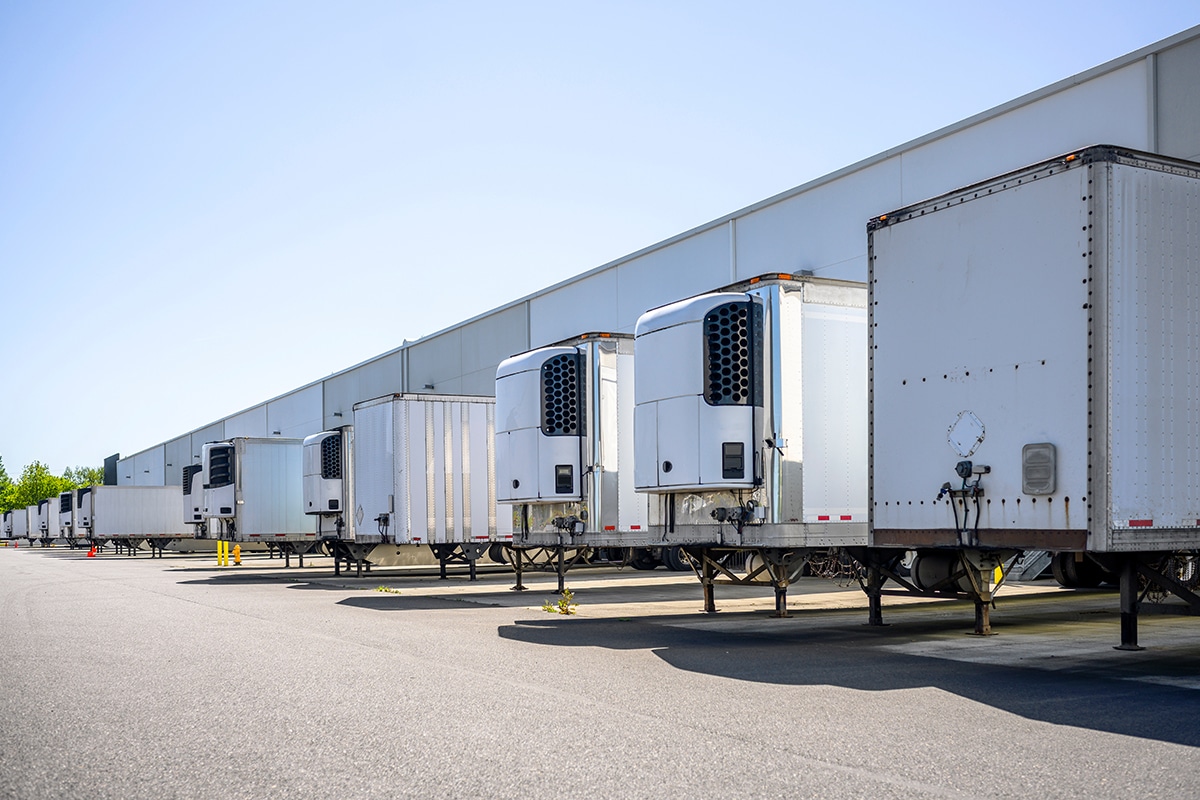Picking the Right Transport Refrigeration System for Your Fleet
Choosing an ideal transportation refrigeration system for your fleet is a vital decision that can substantially affect operational effectiveness and product stability. It requires a detailed understanding of your particular refrigeration needs, consisting of temperature demands and shipment timetables.
Understanding Your Refrigeration Demands
When choosing a transportation refrigeration system, understanding your certain refrigeration requirements is paramount to making sure product high quality and conformity with industry criteria. Different factors must be considered to figure out one of the most suitable system for your procedure. These include the kind of products being carried, their temperature level demands, and the duration of transit.
For perishable items, such as fresh produce or pharmaceuticals, precise temperature level control is vital. Comprehending the temperature variety needed for every product permits the choice of a system that can maintain those conditions regularly. Additionally, consider the regularity of shipments and the distance took a trip; longer journeys may require systems with enhanced insulation or backup power options to avoid temperature changes.

In addition, the ability of the refrigeration device need to line up with your lots dimension. Straining a device can cause inadequate air conditioning, while a large system might be ineffective and pricey. Finally, regulative conformity is important; familiarize yourself with local and international standards regulating the transport of temperature-sensitive goods. By completely examining these aspects, you can make certain that your selected transport refrigeration system properly meets your operational requirements and preserves item integrity.
Sorts Of Transportation Refrigeration Equipment
Selecting the appropriate kind of transport refrigeration system is crucial for making sure the risk-free transit of temperature-sensitive products. There are a number of systems available, each designed to fulfill particular needs and applications.
These systems are often favored for their efficiency and reduced initial expenses. An additional choice is the main refrigeration system, which offers multiple areas or vehicles from a single compressor system.
Additionally, there are self-supporting refrigeration systems that incorporate the compressor and evaporator in one bundle. These units are optimal for smaller sized vehicles or when area is limited. For specialized applications, such as transferring perishables or pharmaceuticals, cryogenic refrigeration systems may be made use of, employing fluid nitrogen or co2 to preserve ultra-low temperature levels.
Lastly, crossbreed refrigeration systems that integrate diesel and electric power are ending up being increasingly preferred, offering adaptability in energy use and decreasing ecological impact. Understanding these various kinds allows fleet drivers to make informed decisions tailored to their specific functional requirements.
Trick Functions to Take Into Consideration
How can one guarantee that a transport refrigeration system meets all functional requirements? To achieve this, several crucial attributes have to be carefully assessed. First of all, temperature control is essential; systems need to supply accurate temperature settings to suit different products, ranging from iced up items to subject to spoiling things.
Power efficiency is another vital factor to consider, as it influences operational prices. Search for systems that use advanced innovation, such as variable speed compressors, to optimize power use without endangering performance.
One more function to examine is the integrity and sturdiness of the tools. Equipments created from premium products and created for resilience against rough conditions will certainly lower upkeep expenses and downtime.
In addition, the simplicity of upkeep and availability of elements can substantially influence operational performance (thermo king transport refrigeration). Features like modular styles or remote monitoring capabilities can streamline service procedures
Lastly, compatibility with existing fleet management software application can boost monitoring and reporting procedures. By concentrating on these essential features, fleet operators can ensure that their transportation refrigeration systems not just meet current demands however also adapt to future requirements.

Budgeting for Refrigeration Solutions
Evaluating vital attributes of transport refrigeration systems is only one part of guaranteeing functional performance; budgeting for refrigeration services is just as crucial. A well-structured spending plan not only encompasses the first acquisition rate but also thinks find more about long-term look at these guys functional expenses, consisting of power consumption, maintenance, and prospective fixing requirements.
When developing a budget plan, fleet managers need to initially examine the overall expense of ownership (TCO) This consists of not just the acquisition costs however additionally recurring expenses associated with fuel effectiveness and the sturdiness of the refrigeration devices. Choosing systems with greater energy effectiveness rankings might yield substantial financial savings over time, reducing ahead of time costs.
Furthermore, fleet operators must make up prospective scalability. As services grow, the refrigeration needs may change, demanding upgrades or additional systems. Preparation for these future expenses can avoid financial strain.
Funding alternatives can likewise play a vital role in budgeting. Leasing, fundings, or straight-out acquisitions each have distinct financial implications, and recognizing these can assist in making an educated choice. Inevitably, a comprehensive budget that thinks about both future and immediate demands guarantees that transport refrigeration systems contribute positively to the overall operational efficiency of the fleet.
Upkeep and Support Options
In the realm of transport refrigeration systems, effective upkeep and support alternatives are vital for ensuring ideal performance and durability. Regular upkeep is important to protect against break downs and preserve the stability of temperature-sensitive freight. It is a good idea to establish a routine assessment timetable with qualified technicians who can execute required checks and fixings on refrigeration systems.
Support options must include a robust service agreement, covering both routine maintenance and emergency situation repair services. This ensures that your fleet has access to motivate help, lessening downtime and maintaining operational efficiency. Lots of producers use comprehensive assistance bundles that include training for your team, allowing them to perform basic troubleshooting and upkeep jobs.
Furthermore, using remote surveillance innovation can enhance your maintenance method - thermo king transport refrigeration. These systems give real-time data on temperature and performance, enabling aggressive actions before problems thermo king truck refrigeration escalate. Purchasing training and innovation not just improves your fleet's reliability but additionally extends the lifespan of your refrigeration systems
Eventually, a tactical strategy to upkeep and support will certainly safeguard your financial investment and make certain that your transport refrigeration systems operate at peak efficiency, delivering constant outcomes for your organization.

Final Thought
In verdict, selecting the appropriate transportation refrigeration system for a fleet requires a thorough examination of details refrigeration needs, system kinds, and crucial attributes. In addition, cautious budgeting and planning for future scalability will certainly add to the lasting success of the refrigeration technique.
Picking an ideal transportation refrigeration system for your fleet is an important choice that can dramatically affect operational efficiency and item honesty.When choosing a transport refrigeration system, comprehending your details refrigeration requirements is critical to making sure product quality and compliance with market criteria. By extensively analyzing these factors, you can guarantee that your selected transportation refrigeration system successfully meets your functional requirements and maintains product honesty.
Inevitably, a comprehensive spending plan that takes into consideration both future and prompt needs guarantees that transport refrigeration systems add positively to the total functional effectiveness of the fleet.
In verdict, selecting the appropriate transport refrigeration system for a fleet requires a thorough assessment of specific refrigeration needs, system kinds, and essential attributes.
Comments on “Advanced Thermo King Truck Refrigeration Units for Reliable Distribution”